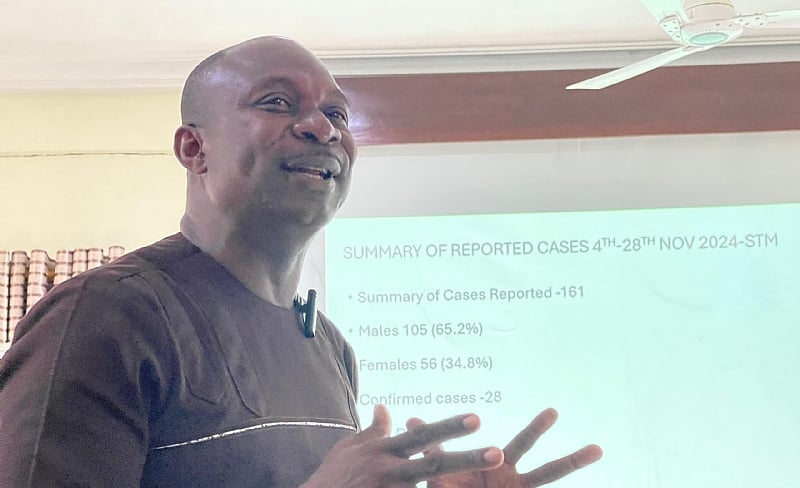The Sekondi-Takoradi Metropolis in Ghana’s Western Region is currently facing a significant cholera outbreak, with the Ghana Health Service (GHS) reporting an alarming rise in cases over the past week. The latest briefing by Dr. Pius Mensah, the Metropolitan Director of Health, revealed that there have been three additional cholera-related deaths, bringing the total mortality count to five. In conjunction with these fatalities, the number of suspected cases surged from 79 to 161, encompassing primarily males at 105 as opposed to 56 females. Confirmed cases also increased from 23 to 28 within a mere seven-day period. Such rapid escalation has raised concerns among health officials and community leaders alike, prompting increased efforts to address the crisis.
The most affected regions within the Metropolis are identified as New Takoradi and Takoradi, with reported cases tallying at 31 and 25, respectively. In contrast, Fijai has recorded only four cases. Other areas exhibiting significant cases include Kansaworado, Kojokrom, Ahinkofikrom, Kweikuma, Sekondi, Diabene, and Essikado. Dr. Mensah highlighted that the first case emerged on November 4, leading to a sustained response effort from health officials aimed at curbing the outbreak. He implored the public to remain informed and engaged actively in efforts to break the transmission chain of cholera, underscoring the community’s role in combating the disease.
In light of the pressing situation, Dr. Mensah reassured the public to maintain composure while health agencies intensify their control measures. He emphasized adherence to GHS’s established cholera preventive protocols as crucial for averting further spread of the illness. Residents have been advised to seek immediate medical attention upon experiencing any symptoms, which includes persistent diarrhea and severe dehydration—both hallmark signs of cholera. This proactive approach is vital for timely interventions and minimizing the overall impact of the outbreak on public health.
Supporting the public health efforts, Mr. Daniel Lamptey, the Sekondi-Takoradi Metropolitan Environmental Health Officer, reported on initiatives aimed at educating the populace about maintaining cleanliness around their living environments. The department has been actively engaging residents to ensure they understand the importance of hygiene in preventing cholera transmission. Additionally, a screening exercise targeting food vendors across various communities has been initiated to emphasize best hygiene practices, directly influencing the food safety standards when interacting with consumers.
Moreover, coordination among local government officials and media has become integral in enhancing public awareness regarding choleral preventive measures. Mr. Innocent Haligah, the Metropolitan Coordinating Director, called on media entities to play a vital role in disseminating information that could bolster preventive actions amongst residents. By collaborating with the Assembly, these channels can significantly amplify efforts to educate the community on the necessary measures to adopt, ultimately aiming to reduce new infections and mitigate the outbreak’s reach.
As the cholera situation in Sekondi-Takoradi continues to evolve, it is imperative for all stakeholders—health professionals, government officials, community leaders, and residents—to work together. A united front anchored in education, adherence to hygiene practices, and rapid medical response can fortify the community against the spread of cholera. With concerted efforts, it is hopeful that the increasing trend of cases can be reversed, protecting the health and wellbeing of the population while preventing further tragedy from this preventable disease.


